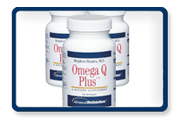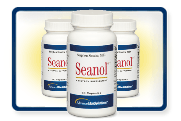It has been consistently revealed by epidemiological research that individuals with a high dietary intake of antioxidant vitamins have a risk that is lower-than-average of cardiovascular disease. This evidence seems to be especially consistent for vitamin E. Additionally, many clinical studies show that magnesium supplementation is of significant benefit in the treatment of cardiac arrhythmias and in reversing the depletion of potassium that comes along with a magnesium deficit. Many cardiovascular events like angina pectoris, congestive heart failure, and cardiomyopathy are related directly to low magnesium status. Coenzyme Q10 is an essential component in cellular energy production. This nutrient is also prevalent in the heart muscle. When tissue levels of CoQ10 are low, there is an association with several cardiovascular complications. Among these are angina, congestive heart failure, cardiomyopathy, hypertension, and mitral valve prolapse. Research has found that the trio of coenzyme Q10, vitamin E, and magnesium plays a crucial role in the maintenance of cardiac health and the prevention of disease states.
The cardio-protective effect of vitamin E seems to come from its ability to bind to LDL cholesterol, which protects it from free-radical induce oxidative damage along with the consequent buildup of atherogenic plaque. Low levels of vitamin E in the blood are a predictive factor of heart health almost 70% of the time.
Studies on the general population have suggested that there is a link between the intake of calcium and blood pressure. Although results of the studies have not been consistent, there are several studies showing that calcium supplementation can lower blood pressure in those individuals who experience hypertension. Overall, those intakes of calcium that are sub-optimal contribute directly to hypertension. It seems that dietary calcium reduces blood pressure by normalizing intracellular calcium levels.
Supplementation with magnesium is of benefit for the treatment of cardiac arrhythmias and the prevention of potassium depletion. Both magnesium and potassium play an important role in the functioning of the heart. Several studies have found that there is improvement in heart function in those patients that have cardiomyopathies when they supplement with magnesium. Since magnesium acts in so many ways to enhance cardiac function and optimize cellular metabolism, magnesium is widely recognized as a critical nutrient for general cardiac support.
Several double-blind studies have taken place in those patients that experience various cardiomyopathies in order to show the benefits of CoQ10 supplementation. One study reported an 89% improvement rate in 80 cardiomyopathy patients who were treated with CoQ10. The coenzyme also appears to moderate blood pressure through the usual mechanism, as it lowers cholesterol levels and also stabilizes the vascular system with its antioxidant properties. Because of this, it is able to reduce vascular resistance. Several studies on CoQ10 supplementation have confirmed that this nutrient posses the ability lower both systolic and diastolic pressures by up to ten percent.
There are other nutrients that play important roles in optimizing cardiovascular health and reducing hypertension. Among these nutrients are gamma tocopherol, calcium, magnesium, l-carnitine, acetyl-l-carnitine, procyanidolic oligomers, phenolic compounds, and lycopene. As you can see there are many natural supplements that can help the cardiovascular system. Remember to always consult your doctor before adding supplements to your diet while on prescription drugs. Look to your local or internet health food store for quality vitamins, herbs, and specialty formulas to boost your health and wellness. |




